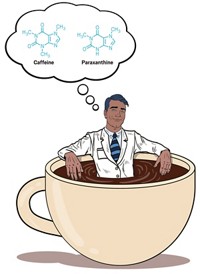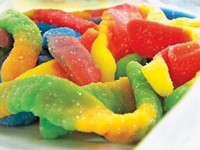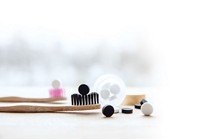Advertisement
Grab your lab coat. Let's get started
Welcome!
Welcome!
Create an account below to get 6 C&EN articles per month, receive newsletters and more - all free.
It seems this is your first time logging in online. Please enter the following information to continue.
As an ACS member you automatically get access to this site. All we need is few more details to create your reading experience.
Not you? Sign in with a different account.
Not you? Sign in with a different account.
ERROR 1
ERROR 1
ERROR 2
ERROR 2
ERROR 2
ERROR 2
ERROR 2
Password and Confirm password must match.
If you have an ACS member number, please enter it here so we can link this account to your membership. (optional)
ERROR 2
ACS values your privacy. By submitting your information, you are gaining access to C&EN and subscribing to our weekly newsletter. We use the information you provide to make your reading experience better, and we will never sell your data to third party members.
Environment
Newscripts
Health Cola, Skin Care Beverages, Superfruits
by Corinne Marasco
June 11, 2007
| A version of this story appeared in
Volume 85, Issue 24
Health Cola
Americans don't age gracefully. We welcome whatever liquid, pill, or panacea that promises to slow the aging process or at least help us look better. Sometimes, price is no object.
In an effort to revive flagging sales caused by concerns linking traditional soda to obesity, soda companies are marketing "healthier" beverages. Coca-Cola's recent debut in this category is DIET COKE PLUS, which is simply Diet Coke with added vitamins and minerals. According to the company, each 8-oz serving provides "a good source of niacin (vitamin B-3), vitamins B-6 and B-12, zinc, and magnesium (15% of the recommended daily value for niacin, B-6, and B-12, 10% for zinc and magnesium)." In comparison, a leading women's multivitamin provides 50% of the recommended daily value for niacin; 100% for B-6, B-12, and zinc; and 12% for magnesium.
Time will tell whether Diet Coke Plus convinces consumers that a nutrient-enhanced soda is a good choice to help prevent an expanding waistline. It's doubtful, though, that the new formulation will deliver a significant health benefit other than less guilt about drinking soda.
Skin Care Beverages

Following the maxim "you are what you eat" is DRINKABLE SKIN CARE. Creator Scott-Vincent Borba launched his Skin Balance Waters in 2005 as the first skin care nutraceutical beverage, filled with vitamins and antioxidants so you can drink your way to a younger, more radiant you. Naturally, the products claim to be "scientifically formulated" and "dermatologist recommended," designed to soften fine lines and wrinkles, fight aging, and boost whatever body part sags. You can even munch on a Borba Skin Balance Confection, which is nothing more than a high-priced, vitamin-enriched gummy bear. Despite the claims, their promise is based on a subjective outcome: Does your skin look healthier?
Beauty does not come cheap on the Borba system. Those gummy bears will set you back $25 for a less-than-1-lb bag, and the waters cost $2.50 each or $30 for a 12-pack. For maximum benefit, the company recommends consuming two bottles of water and six gummy bears per day. Price doesn't seem to be a barrier, though: According to U.S. News & World Report, the firm's overall revenues exceeded $5 million in sales in 2005 and are expected to surpass $12 million this year.
Superfruits

The success of blueberries, cranberries, and pomegranates as SUPERFRUITS has opened the door to more exotic fruits such as mangosteen, açai, goji, sea buckthorn, pomelo, and noni, accompanied by sweeping claims about their intrinsic healthfulness. And Newscripts noted the popularity of the pepino, a superfruit from South America, in the May 28 issue. Superfruits are touted for their robust nutritional benefits, particularly their antioxidant strength, and the media buzz can help increase their mainstream market presence.
There are also spurious claims about these superfruits that call their benefits and the supporting science into question. For example, in Polynesian medicine, noni is an important plant whose roots, bark, and leaves are generally used as a topical remedy. The fruit reportedly tastes like rotten cheese. That hasn't stopped the juice from being sold as a dietary supplement, however, even though the evidence is thin to support any significant health benefits. A leading brand, Tahitian Noni, sells for $42 per L, which should last about a month. Furthermore, it's not clear just how much noni juice is actually present. According to the label, a bottle contains unspecified amounts of noni juice puree, natural grape juice concentrate, natural blueberry juice concentrate, and natural flavors, so it seems like an expensive solution to improving nutrition. Newscripts thinks that drinking a glass of Concord grape juice will save money in the long run, and its antioxidant properties are more solidly documented.
This week's column was written by Corinne Marasco. Please send comments and suggestions to newscripts@acs.org.





Join the conversation
Contact the reporter
Submit a Letter to the Editor for publication
Engage with us on Twitter